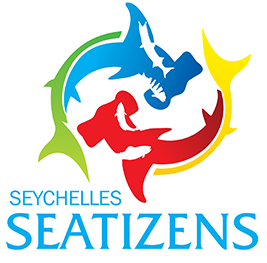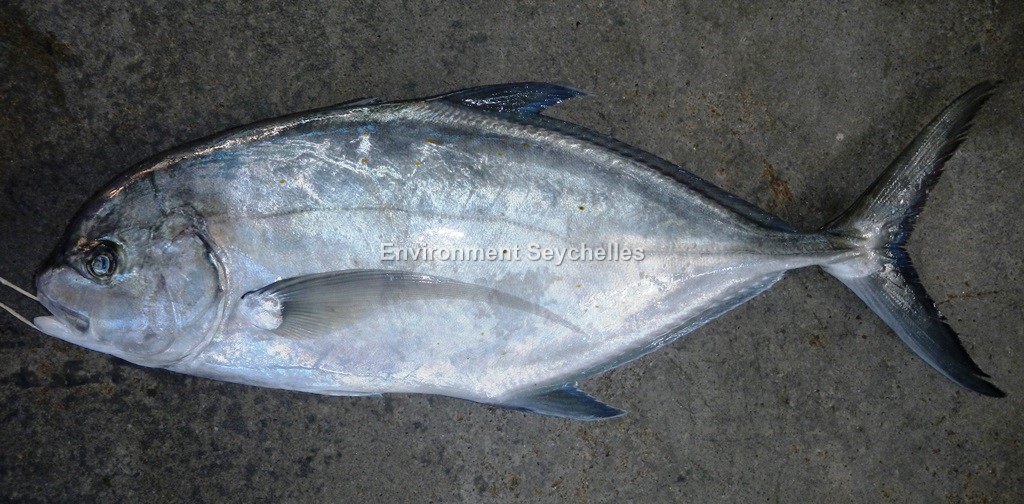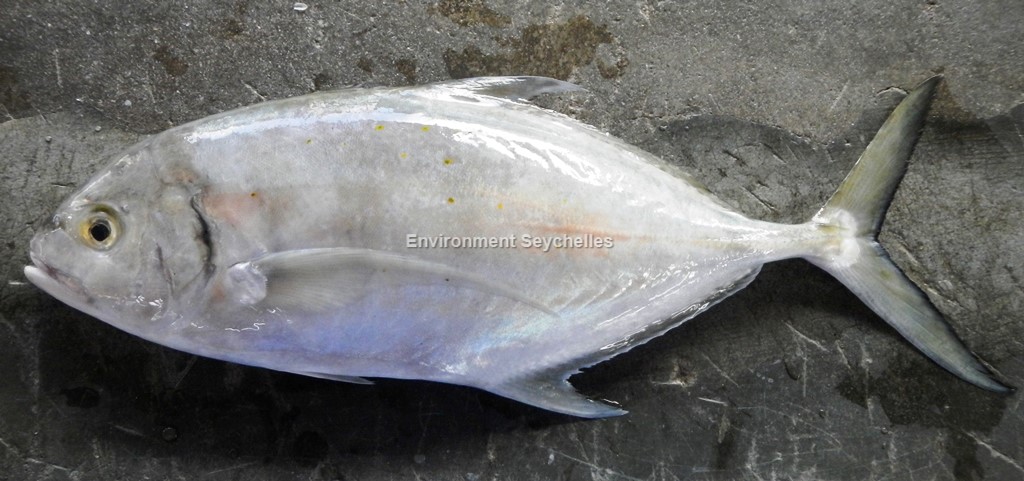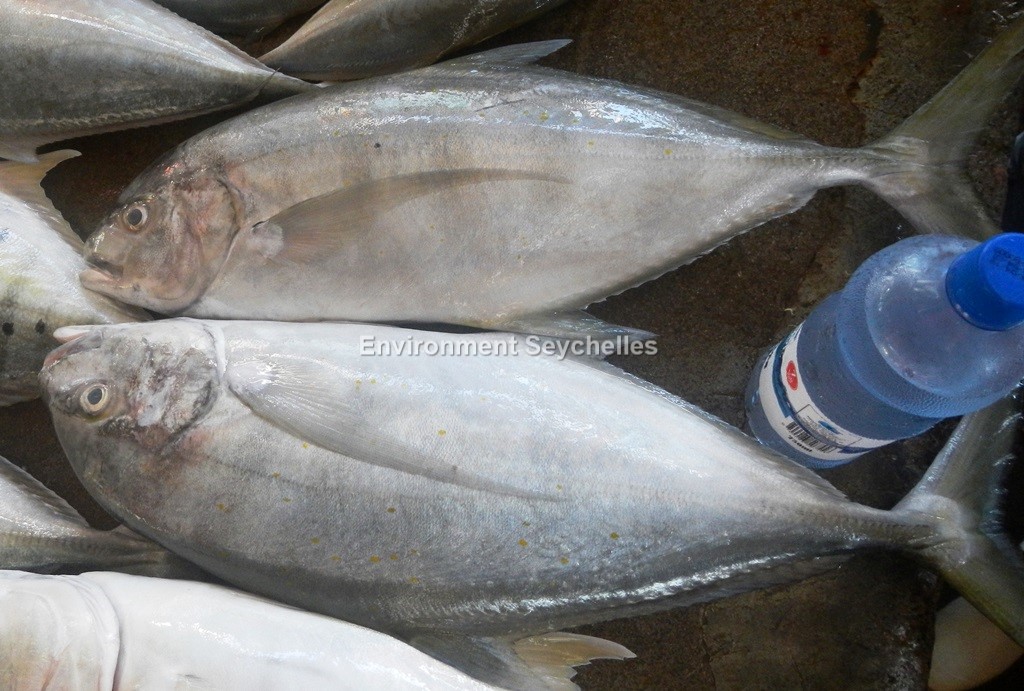Description:
Dorsal spines: 9; Dorsal rays: 26-34; Anal spines: 3; Anal rays: 21-26.
Body oblong and compressed; dorsal profile more convex than ventral profile; snout bluntly rounded. Upper jaw highly protractile. Jaws with bands of villiform teeth. Long
curved pectoral fins and a forked tail. Dorsal spines short. Lobe of second dorsal fin falcate, especially in small adults. Lateral line anteriorly with a very slight arch.
Breast naked ventrally to origin of pelvic fins, separated from naked area at pectoral fin base by broadband of scales.
Colour: head and body generally silvery, blue-green above paler below, with 5 to 7 dusky bars on sides which may be faint or fade soon after death. Numerous inconspicuous
golden spots often present on upper half of body. No opercular spot. Leading-edge of anal fin and lower lobe of tail fin bluish white. Pelvic fins hyaline to whitish.
Caudal fin yellow-green with trailing edge and lobe tips dark.
Size:
Maturity: Lm unknown. Range unknown. Max Length: 70cm TL. Commonly 30cm TL.
Habitat and Ecology:
Occurs in coastal waters along sandy beaches and coral and rocky reefs (depth 1-60m). Solitary or in small groups. Feeds primarily on prawns, crabs, and small fishes.
Fishery Status:
This species is not protected or subject to fishery regulations. This species is caught in the handline fishery. Its relative abundance is hard to assess as it may often go unnoticed amongst other carangids.
Notes:
References:
Australian Museum (2019). Blue Trevally, Carangoides ferdau (Forsskål, 1775), https://australianmuseum.net.au/learn/animals/fishes/blue-trevally-carangoides-ferdau-forsskl-1775/ (19/05/19).
Fischer, W. & G. Bianchi (eds), (1984). FAO species identification sheets for fishery purposes. Western Indian Ocean; (Fishing Area 51). Prepared and printed with the support
of the Danish International Development Agency (DANIDA). Rome, Food nd Agricultural Organization of the United Nations, vols 1-6: pag. var.
Froese, R. & D. Pauly. Eds. (2019). FishBase. https://www.fishbase.se/summary/1921 (19/05/19).
Heemstra P & Heemstra, E. (2004). Coastal Fishes of Southern Africa. NISC SAIAB. ISBN: 1-920033-01-7.
Smith-Vaniz, W.F. & Williams, I. (2016). Carangoides ferdau (errata version 2017). The IUCN Red List 2016: http://dx.doi.org/10.2305/IUCN.UK.2016-3.RLTS.T20429455A46664064.en. (19/05/19).
Citation:
Nevill, J.E.G. (2019). Carangoides ferdau, Blue trevally. Seychelles Seatizens. www.seatizens.sc. https://seatizens.sc/species/carangoides-ferdau-forsskal-1775/ (edited 21/06/22).



